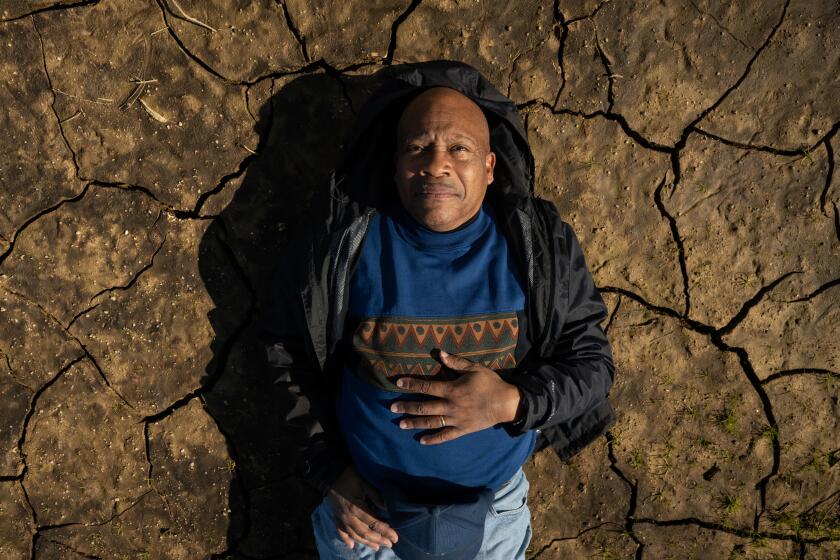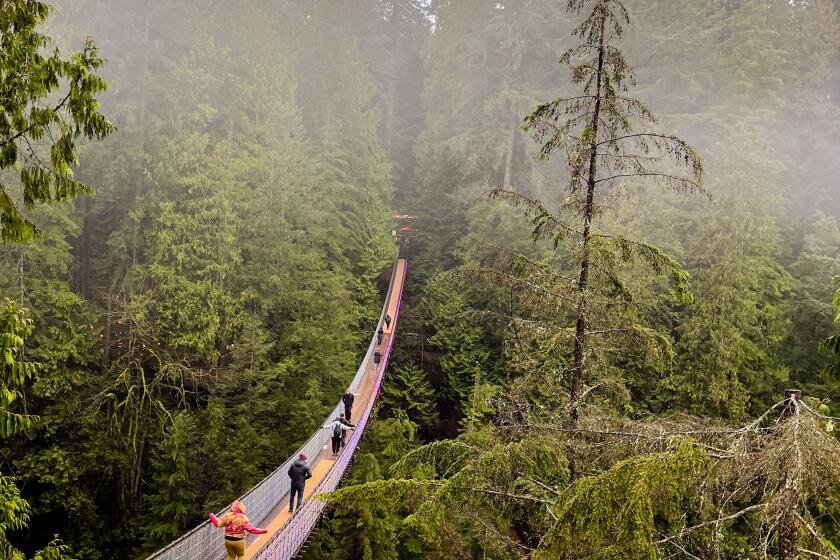The best West Coast travel spots, according to readers
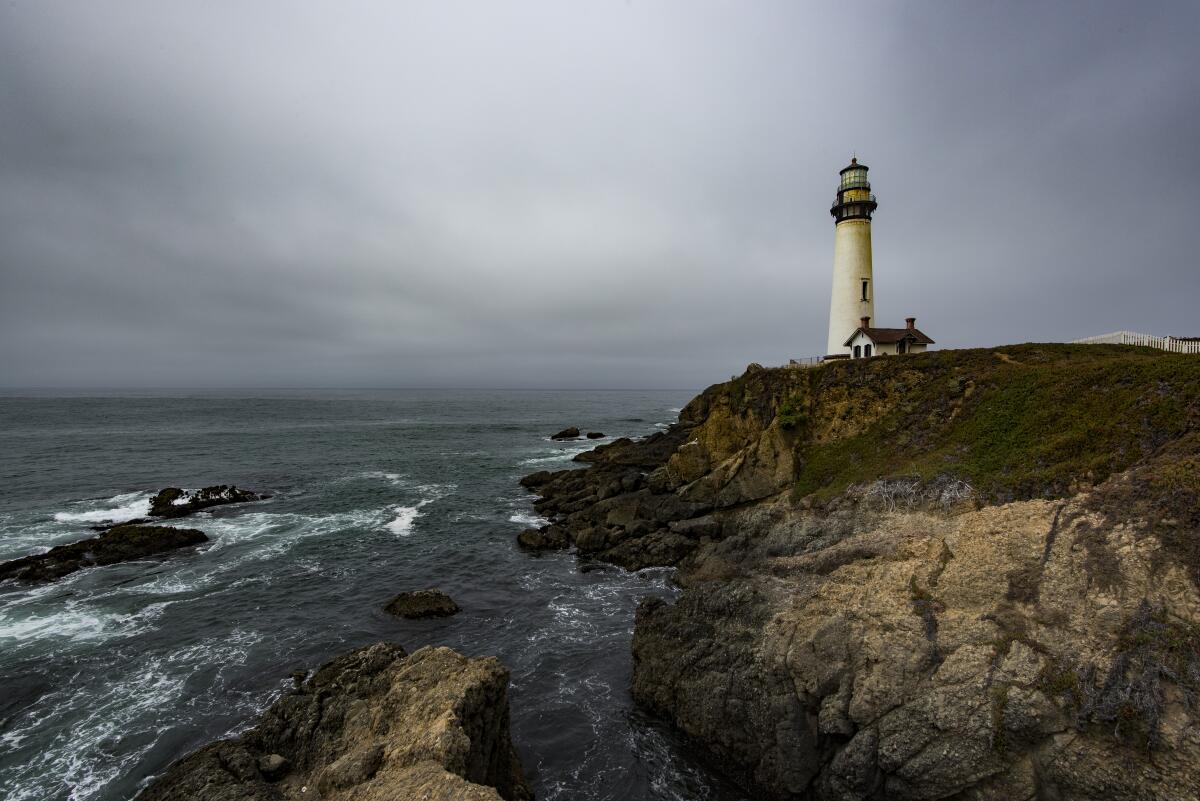
- Share via
Sometimes 101 is just too small a number.
Many readers, having digested our new list of 101 best West Coast experiences, have stepped up to make the case for destinations we left out, from a country road in Malibu to a remote beach town on a Canadian island. We’ve gathered a sampling of them here.
Essential things to do, see and eat right now in California, Oregon, Washington, the Baja Peninsula and British Columbia. Ready to explore?
Most of these readers are pitching their hometowns or sharing finds from their own western ramblings, but others are more mysterious.
One reader wrote from a beloved corner of coastal Northern California to say, “I would tell you [where], but then it would be CROWDED.”
Another reader, insisting on anonymity, said he likes living on a boat in Baja Peninsula, looking out at “the world’s biggest aquarium” in the Gulf of California.
Yet another reader described a “magical” spot at Stinson Beach in Marin County, where birders could watch scores of snowy egrets and great blue herons nest. Alas, officials at Audubon Canyon Ranch say, that moment has passed. A campaign of prolonged and increasing harassment by bald eagles has chased the egrets and herons from the Martin Griffith Preserve. As much as we’d sometimes like it to, the West does not stand still.
As the guy who put together the 101 destinations on our list and fretted plenty over which to include, I have to admit that the readers’ choices here are solid, if not downright jealousy-provoking. I hope to see some of these places in coming months.
Meanwhile, they’re arranged here from south to north.
A road in Malibu
In a passage that sounds like it might be the beginning of a novel, Bryan A’Hearn of Los Angeles writes in praise of driving Malibu Canyon Road on a dewy morning after a long evening with an old friend.
A’Hearn: “Our late night — of lousy cards and sips of cheap vodka and orange juice and industry gossip with too many characters and old and new news — crawled into early morning, and a scenic drive seemed appropriate. It was not quite dawn, and the fog in the valley climbed and coiled the hills ahead of us. Sometimes you were caught in the canyon fog, and the road stretched as long as your low beams. Malibu Canyon Road forks onto tree-hooded backroads; there the fog is mist and veils cul-de-sacs with long, flat houses and fancy mailboxes. My old friend mentioned she once baby sat or dog sat or tutored or nannied — you forget, really — a family up here. The sun yawned over the Pacific and the fog began to lift, and we made the descent to Malibu Colony.”
A historic Black town in Tulare County
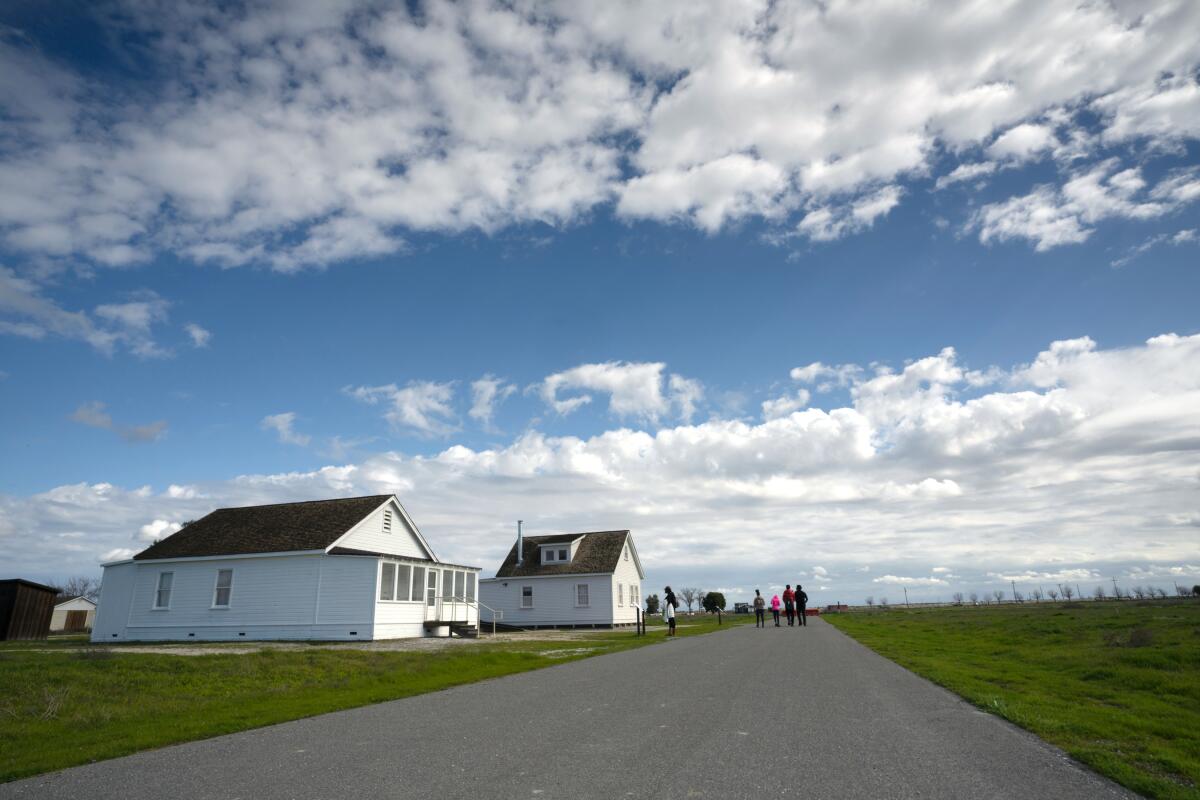
Lisa Fitch of Los Angeles first visited Colonel Allensworth State Historic Park — site of the first California town founded, financed and governed by African Americans — on a neighborhood group field trip. Soon after, she joined the Friends of Allensworth.
The park is a collection of restored and reconstructed wooden buildings, 12 miles west of Delano in the San Joaquin Valley. The 800-acre town was founded in 1908 near a Santa Fe rail route. Its key proponent, Fitch writes, was an educator and Army chaplain named Col. Allen Allensworth, a charismatic leader who had been born into slavery in the 1840s.
A California Historic Park commemorates life in Allensworth, a Central Valley town founded after the Civil War where Black residents could prosper.
After several years of growth, the town faltered and eventually emptied amid a water shortage, the loss of rail service and the death of Col. Allensworth in a traffic accident. The remaining buildings were at risk of demolition in the late 1960s when former resident Cornelius “Ed” Pope launched a campaign to preserve it. Allensworth became a state historic park in 1974.
On June 8 of this year from 10 a.m. to 4 p.m., Fitch writes, “Allensworth will hold a Juneteeth event! Bring a blanket and umbrella and enjoy tours of the refurbished buildings, entertainment and vendors.”
The star of Sequoia National Park
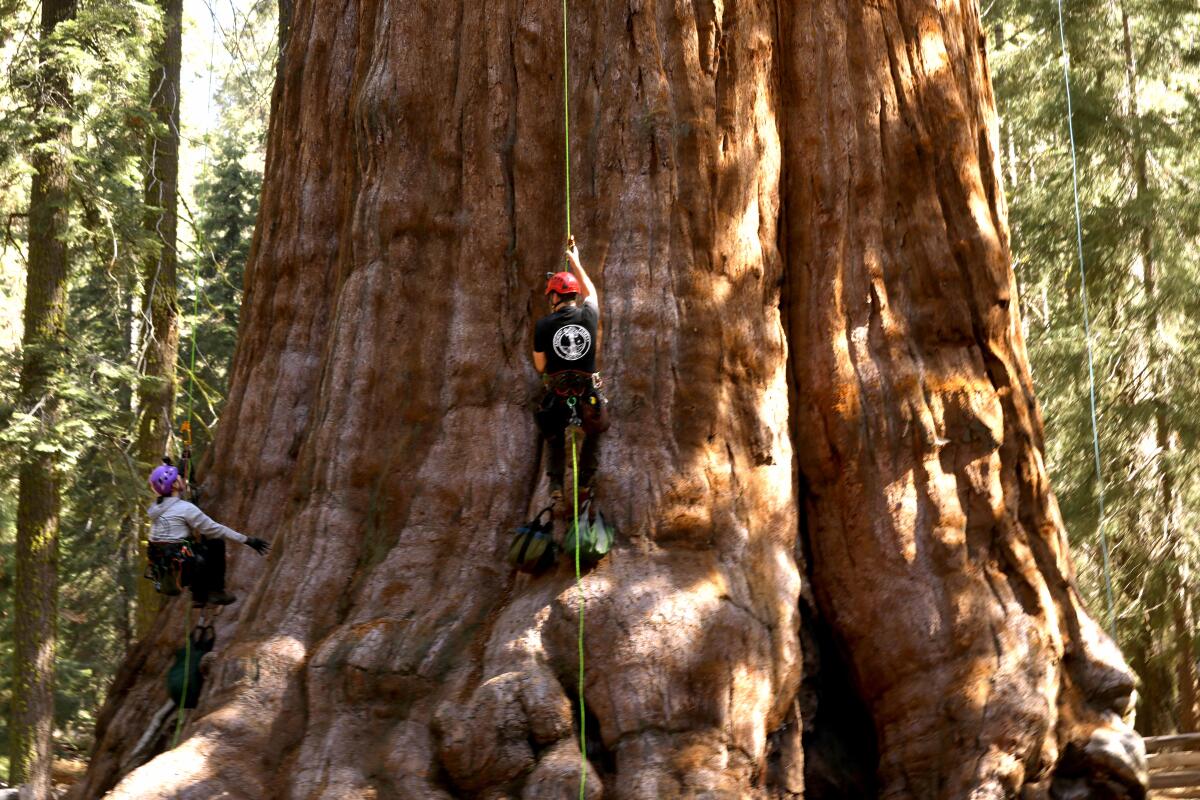
“I understand that any list is curated,” begins Eric Gersh of Agoura Hills. Then his note let me have it for overlooking the General Sherman Tree and its companion sequoias in Sequoia National Park. “Still, astonishing that the largest living things on the planet don’t make that list! Too many memories to list, from my own childhood awe to watching my children experience the same wonder at such ancient giants. Yes, you got the redwoods ... twice, but no General Sherman amidst the splendor of the Sierras???”
Mea culpa, Mr. Gersh. For the record, the National Park Service affirms that the General Sherman Tree is “the largest in the world at 52,508 cubic feet (1,487 cubic meters),” standing 274.9 feet high with a base circumference of 102.6 feet.
A lighthouse hostel in San Mateo County
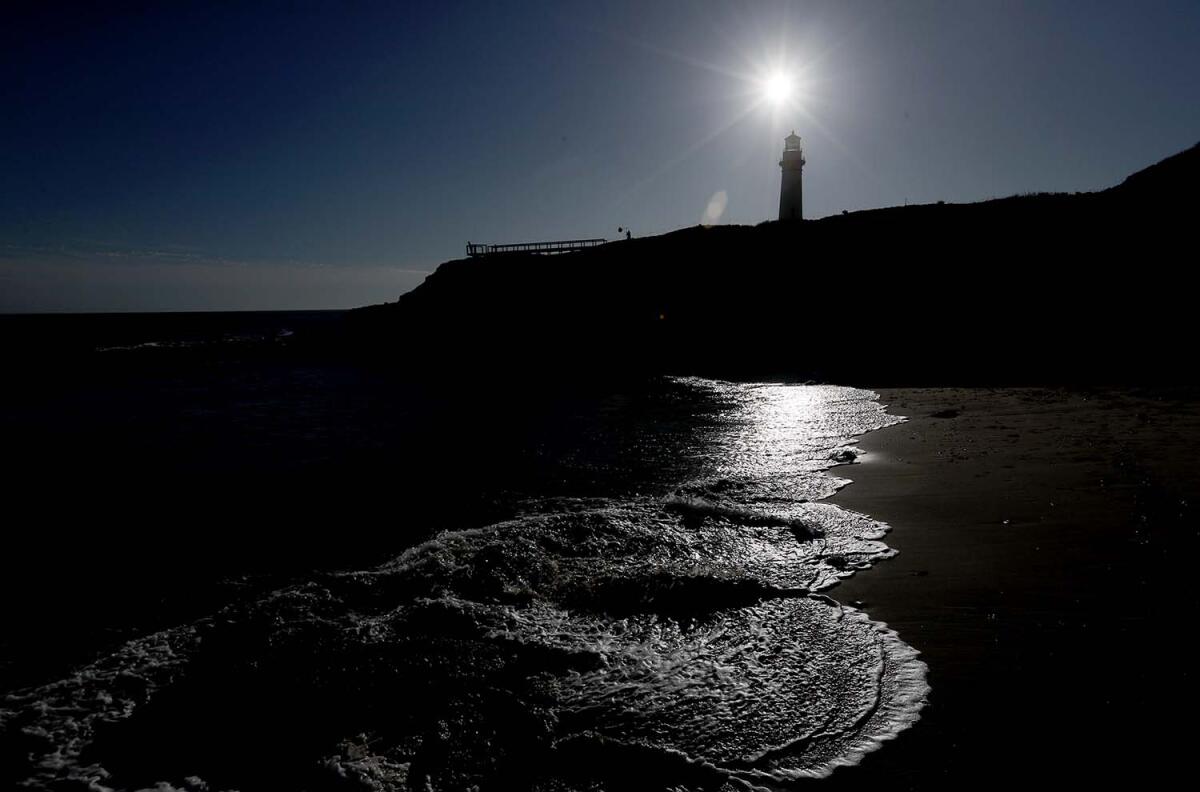
Anna Glynne of La Jolla commends the Pigeon Point Lighthouse Hostel, where she stayed last July. Traveling with her sister and her sister’s three children. Glynne booked two nights in a six-person room.
“Our stay was magical,” Glynne writes. “We explored redwood trails in Butano State Park. Her kids spotted elephant seals basking at Año Nuevo State Park. We drove 9 miles to Pescadero for fancy coffees and fresh-baked bread.”
The group’s room had three bunk beds and a private bathroom, with access to a communal kitchen and living area. Other Pigeon Point options include a sunset soak in a hot tub with an ocean view (and often a sea lion soundtrack) or a fort-building session with driftwood on a nearby beach.
Added Glynne: “If you dread camping (like my sister) but still want to explore the California coast on a budget, don’t forget the hostels.”
A theater festival in southern Oregon
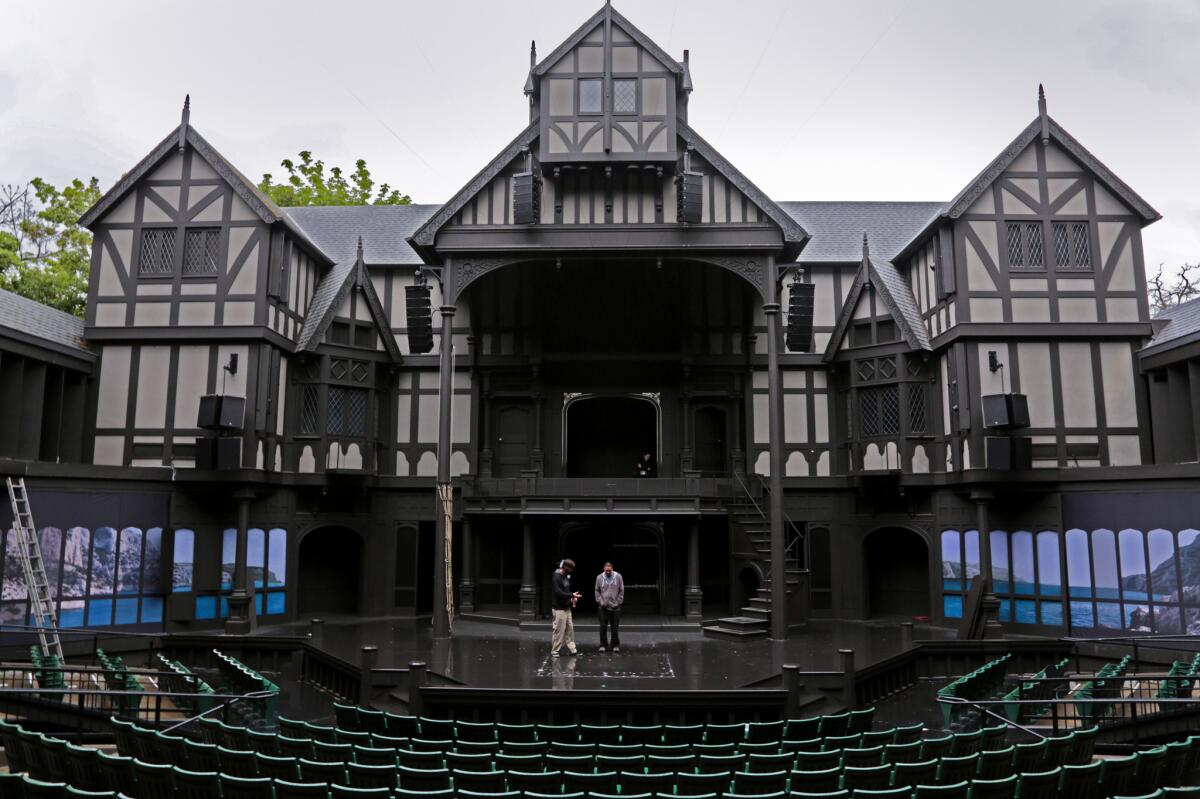
Reader Trinity Tracy of Ashland now takes center stage to speak in favor of the Oregon Shakespeare Festival in Ashland.
As Tracy writes, it’s not just Shakespeare and not just a summer thing. The theater festival, which dates to the 1930s, runs March through October, featuring new and traditional plays. Like many theater companies, Oregon Shakespeare has faced struggles since the pandemic, but “it’s really incredible ... one of the best and biggest Elizabethan theaters in the world and two other theaters.” In addition, the town of Ashland (not far from Crater Lake) has more than its fair share of restaurants, pubs and lodgings for theatrically inclined travelers.
This year’s Oregon Shakespeare productions include Shakespeare’s “Macbeth,” “Coriolanus” and “Much Ado About Nothing;” along with “Born With Teeth” by Liz Duffy Adams (an imagined encounter between William Shakespeare and Christopher Marlowe); “Lizard Boy,” an indie-rock musical by Justin Huertas; an adaptation of Charlotte Bronte’s “Jane Eyre” by Elizabeth Williamson; and several one-person shows.
A rugged beach in Olympic National Park
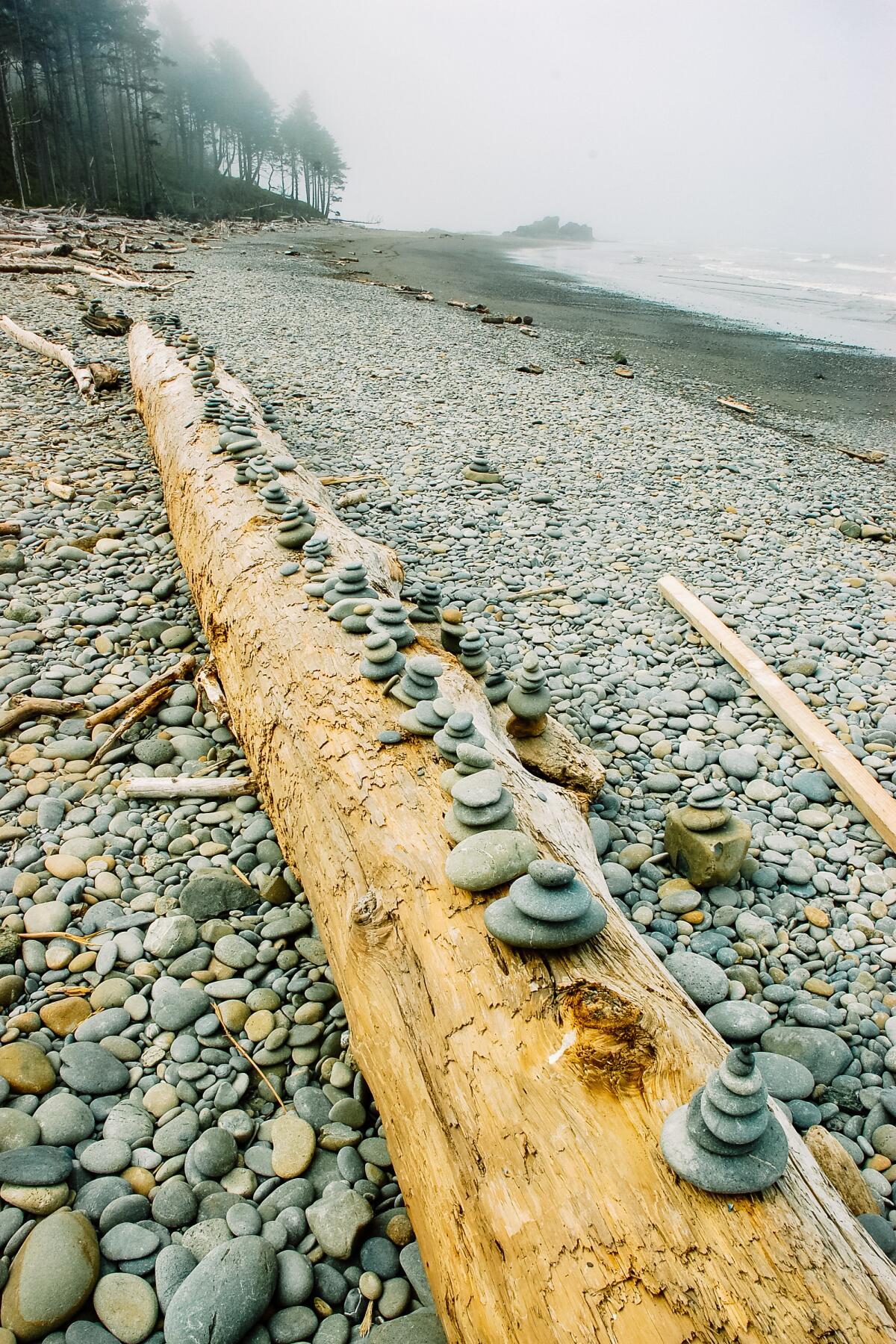
Joel Kawahara of Quilcene, Wash., suggests Ruby Beach, which is a rugged patch of rocky shoreline, often full of driftwood, in Olympic National Park.
Kawahara: “Ruby Beach is almost completely undeveloped. There is a parking lot, a potty and a trail to the beach. There is no development on the beach; it is simply just as the last wave left it. It is perhaps a little over-visited so crowds are an issue. But if you want to understand the north coast, just stand there and watch the surf and look carefully in the tide pools. Don’t think. Be zen. Or as zen as you can.”
A park in Washington’s Port Townsend
Jeffrey Crocker of Pittsfield, Mass., suggests Fort Worden Historical State Park in Port Townsend, Wash. Crocker calls it “a beautiful place. Where the movie ‘[An Officer and a Gentleman’ (1982) was filmed. Rustic, scenic area at entrance to Puget Sound. Camping, hiking.”
Bellingham, Wash.
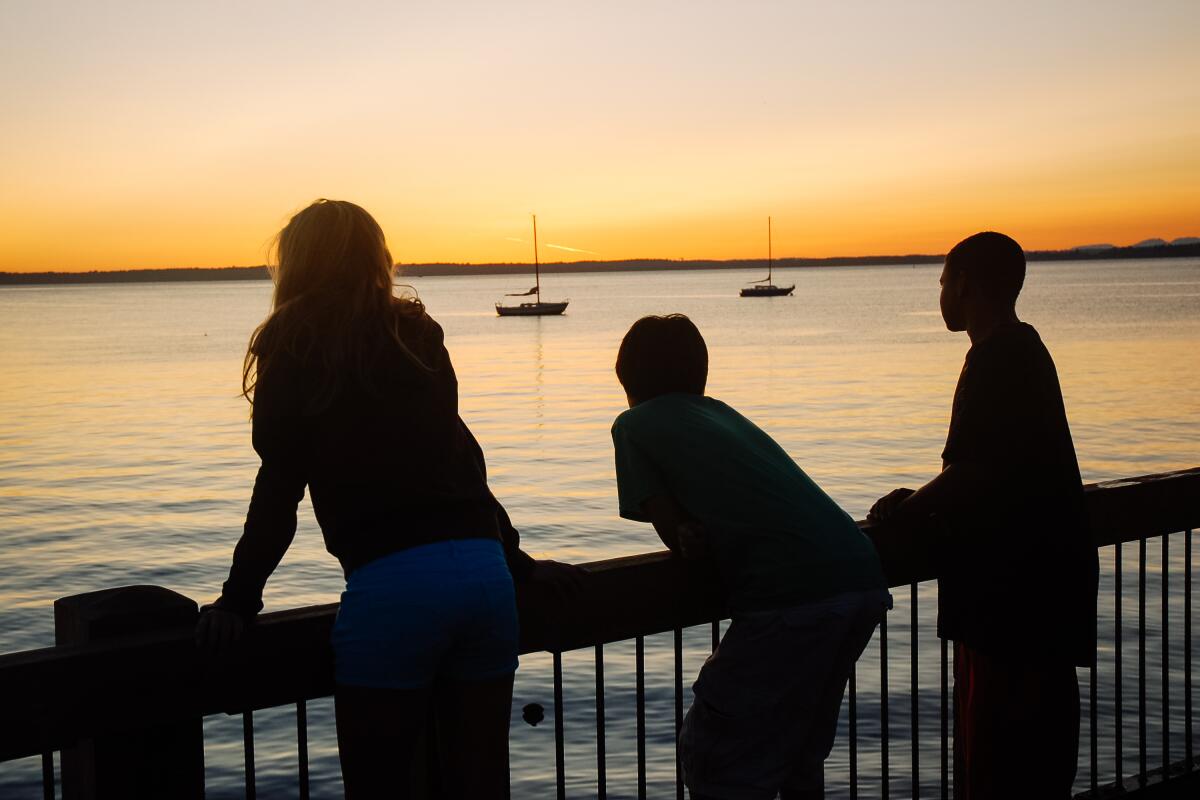
Michael Grass of Bellingham, Wash., suggests his hometown. (And really, you have to love a place that calls itself “the city of subdued excitement.”)
For best effect, Grass says, arrive by train around sunset, taking in the scenery near Chuckanut Mountain and focusing on the historic Fairhaven neighborhood.
“I work remotely from Bellingham and commute into Seattle via Amtrak Cascades a few times a month,” Grass writes, “and never tire of the waterside train views on the 6 p.m. departure out of Seattle.”
Grass notes that Bellingham’s Amtrak station is in the Fairhaven neighborhood. He recommends eating at Fairhaven Poke, drinking at Southside Bar, checking out the watery views from Taylor Dock, hearing music at Skylark’s and browsing Village Books, “a three-level bookstore and community crossroads known for its book talks, programming and writing workshops.” Or you could head to the cruise terminal and catch a ferry to Ketchikan via the Alaska Marine Highway System.
Among Washington’s San Juan Islands
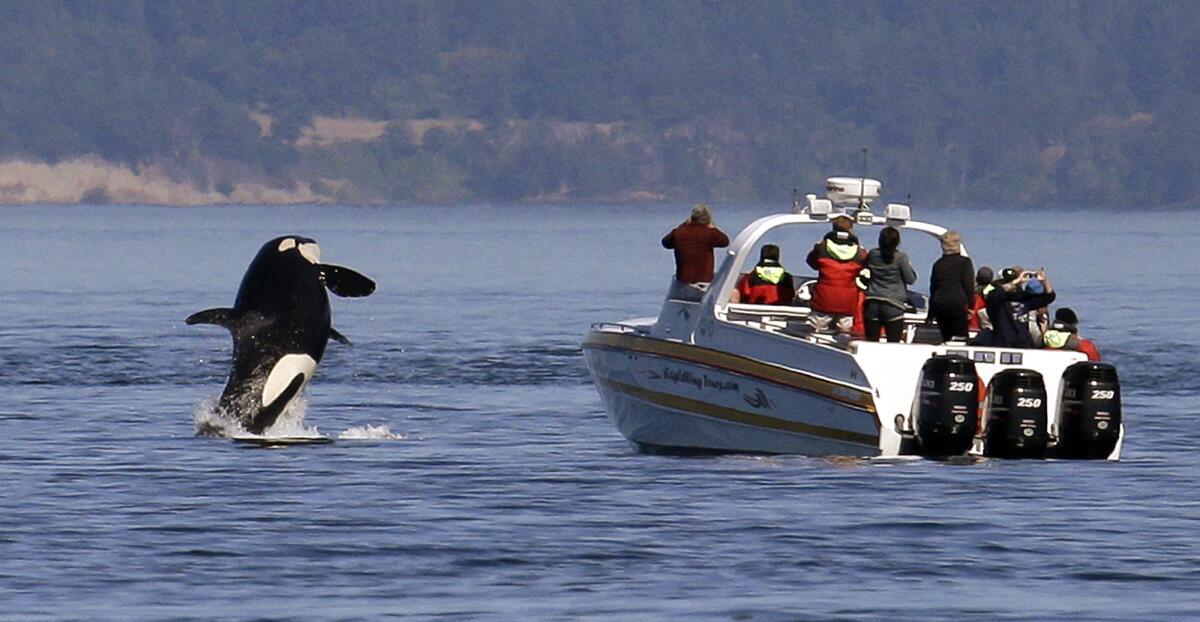
David Tull of Mountain View casts his vote for the San Juan Islands.
“The San Juan Islands are beautiful. Period,” he writes. “The archipelago contains numerous islands of different sizes and accessibility. In places there are narrow channels between islands as well as open sea. The region is home to pods of orcas and gray whales and humpbacks. In addition, bald eagles are thriving in the islands. My biggest thrill was being out on the water in a small boat with orcas coming alongside. Tourism is the principal industry now, but the islands’ largest town, Friday Harbor, is not garish, schlocky or overrun.”
Amid the seaside parks, forest paths, stylish skyscrapers, good food and mingled cultures, you may begin to suspect that Vancouver is a superior version of home.
A coastal town on Canada’s Vancouver Island
Tyler Mark of Los Angeles was disappointed in us for overlooking Tofino, on Vancouver Island in British Columbia.
Writes Mark: “How you make a list without a visit to Tofino is beyond anyone who has been there. This small town perched on the tip of a peninsula on the west coast of Vancouver Island, with the Pacific and its whales on one side and its bay full of otters on the other, is a gem. White-capped mountains cascade down to redwood forests and an archipelago of small timbered islands with beautiful surfable beaches.” Mark also lauds Tofino’s food scene. Basically, he concludes, “This place has everything except easy access, which makes it more special.”
More to Read
Sign up for The Wild
We’ll help you find the best places to hike, bike and run, as well as the perfect silent spots for meditation and yoga.
You may occasionally receive promotional content from the Los Angeles Times.

